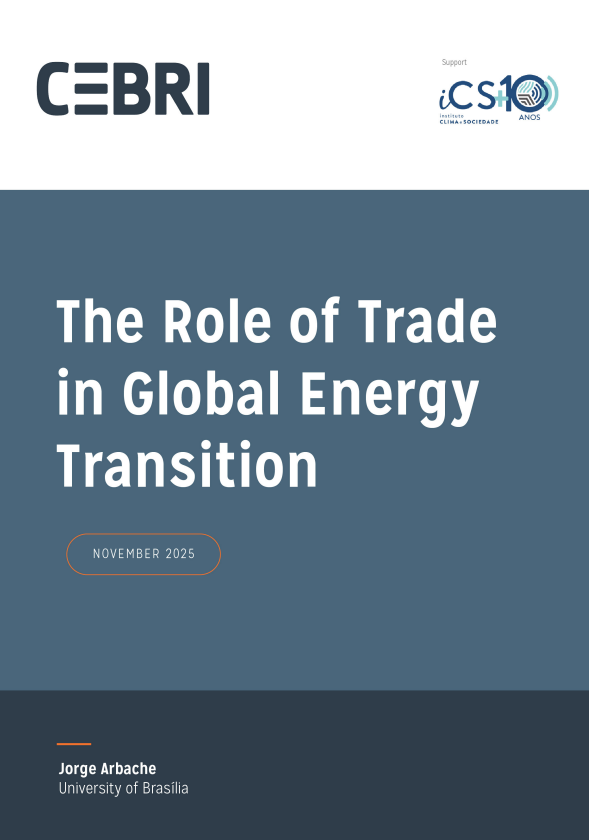Policy Papers
The Role of Trade in the International Energy Transition
- 06 november 2025
This article, authored by Jorge Arbache, in collaboration with the Instituto Clima e Sociedade (iCS) examines how international trade can accelerate global decarbonization and reduce its costs by integrating the concepts of green comparative advantage (Le Moigne, 2023) and powershoring (Arbache, 2022).
Powershoring refers to the relocation of energy-intensive industrial sectors to regions with abundant and competitively priced renewable energy. Combining these concepts enables global carbon arbitrage, optimizing geographic specialization and lowering transition costs, particularly in hard-to-abate sectors.
The article argues that eliminating tariff and non-tariff barriers to green goods and services, as well as reducing regulatory fragmentation, could expand sustainable production and exports, significantly contributing to global emissions reduction. Countries endowed with strong renewable energy potential could thus industrialize their green advantages, generating millions of jobs, accelerating technology transfer, reducing green inflation, and promoting more inclusive economic development.
Key recommendations include coordinated policies, harmonized taxonomies and standards, and the creation of integrated green hubs. Strategically structured trade can therefore become one of the most efficient mechanisms for accelerated decarbonization, delivering corporate, economic, social, and environmental benefits.
This paper was written with the institutional support of Instituto Clima e Sociedade (iCS)
This article, authored by Jorge Arbache, in collaboration with the Instituto Clima e Sociedade (iCS) examines how international trade can accelerate global decarbonization and reduce its costs by integrating the concepts of green comparative advantage (Le Moigne, 2023) and powershoring (Arbache, 2022).
Powershoring refers to the relocation of energy-intensive industrial sectors to regions with abundant and competitively priced renewable energy. Combining these concepts enables global carbon arbitrage, optimizing geographic specialization and lowering transition costs, particularly in hard-to-abate sectors.
The article argues that eliminating tariff and non-tariff barriers to green goods and services, as well as reducing regulatory fragmentation, could expand sustainable production and exports, significantly contributing to global emissions reduction. Countries endowed with strong renewable energy potential could thus industrialize their green advantages, generating millions of jobs, accelerating technology transfer, reducing green inflation, and promoting more inclusive economic development.
Key recommendations include coordinated policies, harmonized taxonomies and standards, and the creation of integrated green hubs. Strategically structured trade can therefore become one of the most efficient mechanisms for accelerated decarbonization, delivering corporate, economic, social, and environmental benefits.
This paper was written with the institutional support of Instituto Clima e Sociedade (iCS)


